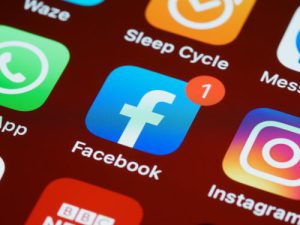
Researchers have suggested that users’ response to social outages show how social media is viewed as important as electricity and gas, and not just a mere tool of entertainment and communication.
Studying the reactions of users to an outage of Facebook which lasted six hours in 2021, the researchers reported that users quickly flooded Twitter with over 250,000 tweets trending the hashtag #facebookdown. Many comments reflected anger and ridicule about the situation. However, a need to find alternative social media outlets was also expressed, according to S. Shyam Sundar, co-director of the Media Effects Research Laboratory at Penn State.
‘Most media effects research is about showing people media and seeing how they react, but in this study we see that removing media can actually be more informative,’ said Sundar. ‘This kind of outage provides us an opportunity to see how people reflect on their access to social media, and what we see is that social media has become so important that it’s almost a utility.’
He added that lots of users rely on social media for their livelihood.
‘It is not simply that people are dependent on it at a social level. When these social media sites go down, businesses also will go down. A lot of people engage in business transactions on the whole family of Facebook apps, such as WhatsApp and Instagram,’ said Sundar. ‘There are newspapers that run completely on Facebook and small businesses and entrepreneurs who have their businesses, like yoga classes that hold lessons through Facebook. So, for some people, it’s a utility because it’s critical to their livelihood.’
According to the researchers, as the outage continued, tweets expressing a need to find another social media grew— 29,000, or 8.8% of the total.
Mengqi Liao, first author of the paper, believes that although it suggests that a large amount of people rely heavily on social media, it doesn’t necessarily mean that they are more loyal to one platform than the others.
‘What we saw was that as the outage continued, the tweets that talked about the desire to find other social media outlets began to increase,’ said Liao. ‘In fact, finding new social media sites was the only topic to steadily increase as time went on during the six-hour outage.’
Also, about 35,000 tweets (10% of the total number) discussed ‘social media detox.’
‘Beyond the users’ mockery and their descriptions of their desperate efforts to log on, we think it’s interesting that some people were also asking and talking about social media detox, which ranked No. 4 among all the topics,’ said Liao.
Sundar said that the study has shown that companies need to prepare more for possible outages.
‘This study throws light on the fact that social media leaders need to better prepare their companies to face outages and they also have to better prepare their users for possible outages,’ said Sundar. ‘Right now, it doesn’t seem like preparing for outages is even part of their design plan.’
The researchers relied on Twitter’s Application Programming Interface (API) to access the 223,815 tweets they analyzed during the outage. After getting rid of duplicate tweets, the researchers made use of a statistical model which created a matrix of the 10 topics emerging from the data in the tweets. The topics included: media reporting, mockery, complaints, business impact, social media alternatives, social media detox, lessons on over-reliance, log-in desperation, problem-solving, personal and professional impact.
By Marvellous Iwendi.
Source: PSU